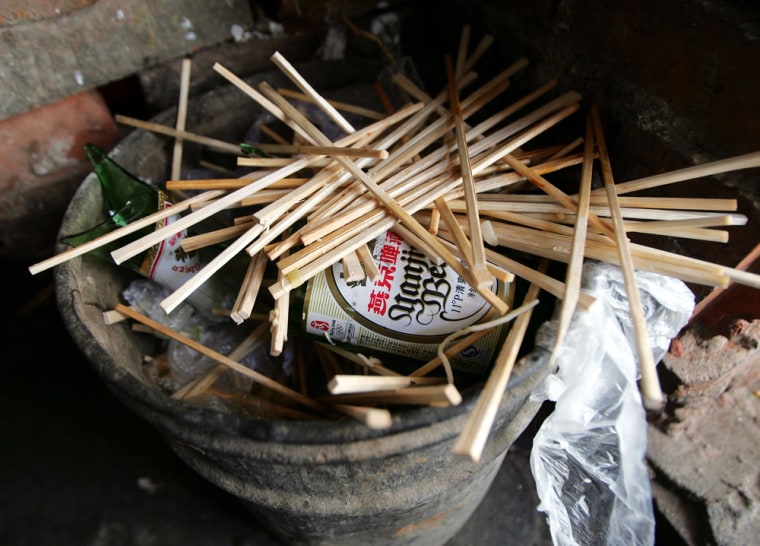China said Wednesday it will slap a tax on chopsticks and raise them on goods ranging from yachts to gasoline and car engines in a bid to save trees, protect the environment and conserve energy.
The changes, which take effect on April 1, are the biggest adjustments to consumption taxes here in 12 years.
A 5 percent consumption tax on both disposable wooden chopsticks and wooden floor panels will help curb the plundering of timber resources, the Ministry of Finance said.
China makes about 15 billion pairs of throwaway chopsticks a year, consuming some 71 million cubic feet of wood, the ministry said.
Bigger car engine, higher tax
Among the most significant changes will be adjustments to car taxes, with levies poised to rise as high as 20 percent for highly polluting vehicles with larger engines.
Charges will be cut or remain unchanged for cars with smaller engines, while taxes on less polluting motorcycles will be reduced to encourage their use, the ministry said.
Hybrid cars and other environmentally friendly vehicles will enjoy a discount, it said, without giving specific details.
China will also broaden the scope of oil products subject to consumption taxes to include fuel oil, jet fuel and naphtha and lubricants, as the government leans more on pricing mechanisms to curb the country’s rampant use of energy.
Definition of luxury changes
Adjustments were also made to level new consumption taxes on golf balls and equipment, yachts and luxury watches and to scrap charges on skincare and shampoo products, once seen as the privilege of the wealthy, but which have become commonplace as incomes have risen.
The adjustments are in keeping with the spirit of the ruling Communist Party’s 2006-2010 plan, which aims to move the nation to a more sustainable growth model with less environmental degradation and greater social equity.
The changes are aimed at “promoting environmental protection and economizing on resources while better guiding the production and consumption of certain products,” the ministry said.
